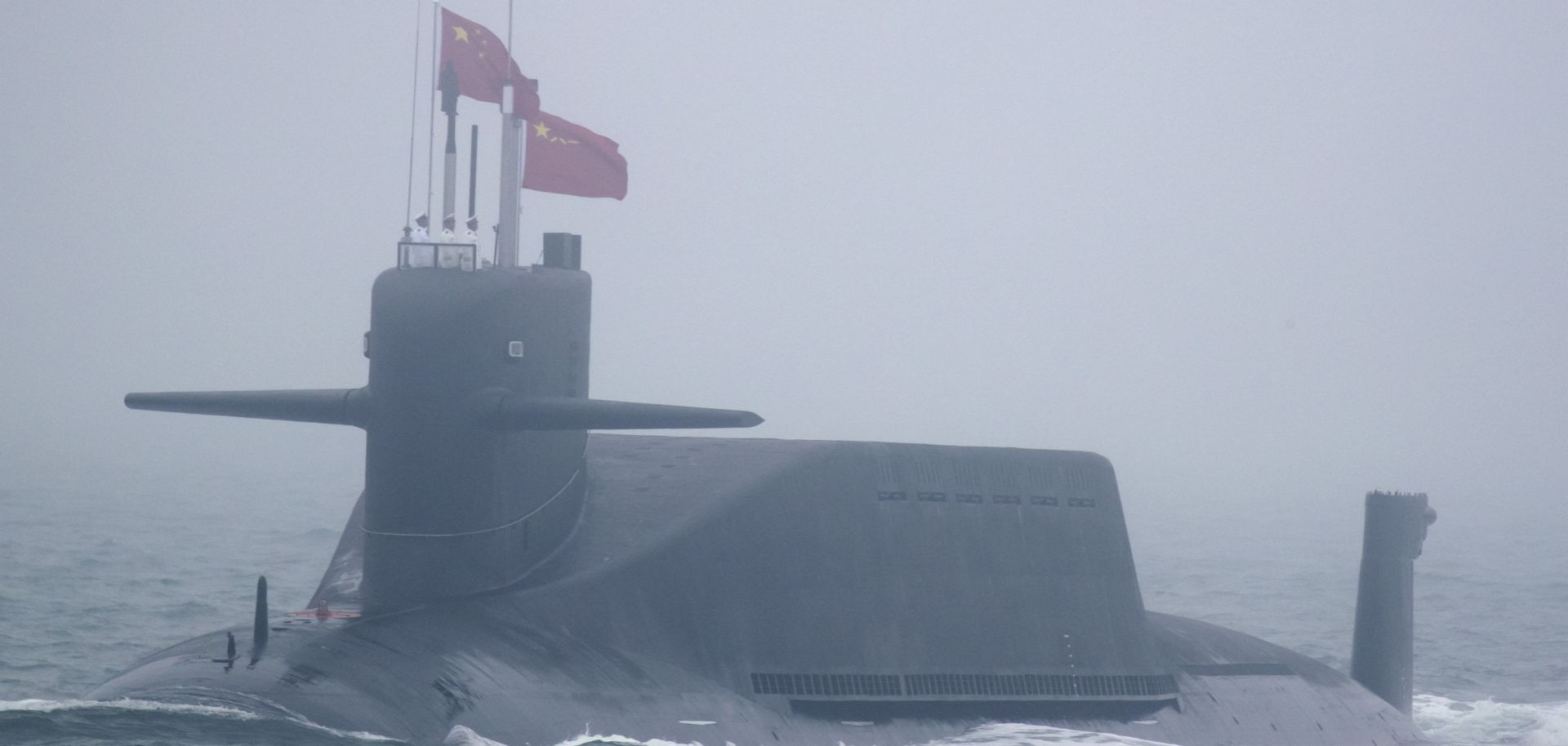ASSESSMENTS
Why China Will Steer Clear of a New START on Arms Control
May 14, 2019 | 05:15 GMT

A new type 094A Jin-class nuclear submarine of the Chinese People's Liberation Army Navy participates in a naval parade to commemorate the 70th anniversary of the founding of China's PLA Navy in the sea near Qingdao, in eastern China's Shandong province on April 23. Beijing has reason to consider joining a revamped New START arms treaty, but it's likely to decide it's better off remaining on the outside.
(MARK SCHIEFELBEIN/AFP/Getty Images)
Highlights
- With time ticking on the New START agreement to limit nuclear arms, the United States will continue its efforts to create a successor treaty that would include China for the first time.
- While controls on strategic nuclear weapons would have little immediate impact on Beijing at this time, any given treaty opens the door to possible oversight and compliance screening, which is unpalatable to Beijing.
- Given the significant mistrust among the world's great powers, China is unlikely to agree to any nuclear limitation deal.
Subscribe Now
SubscribeAlready have an account?
